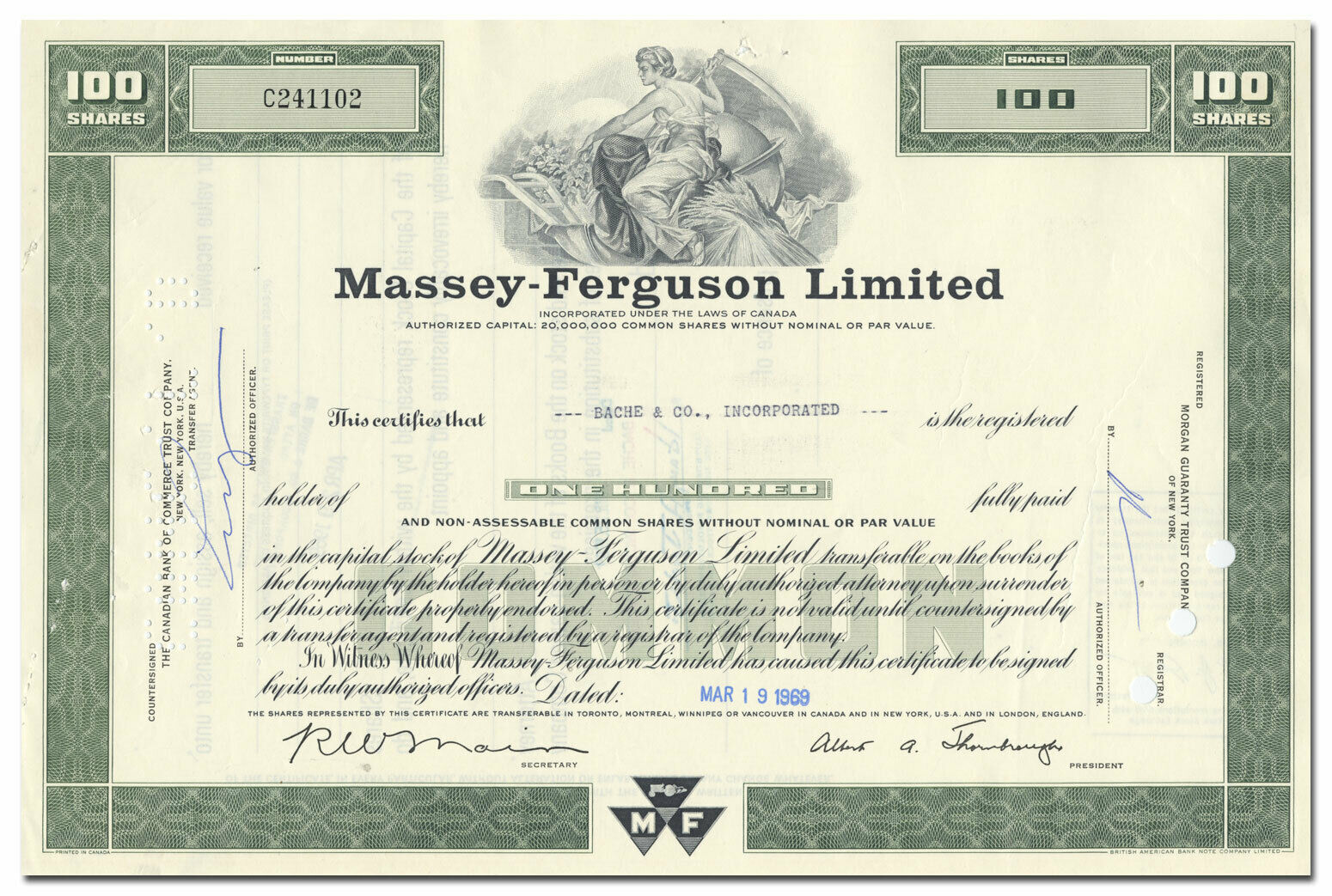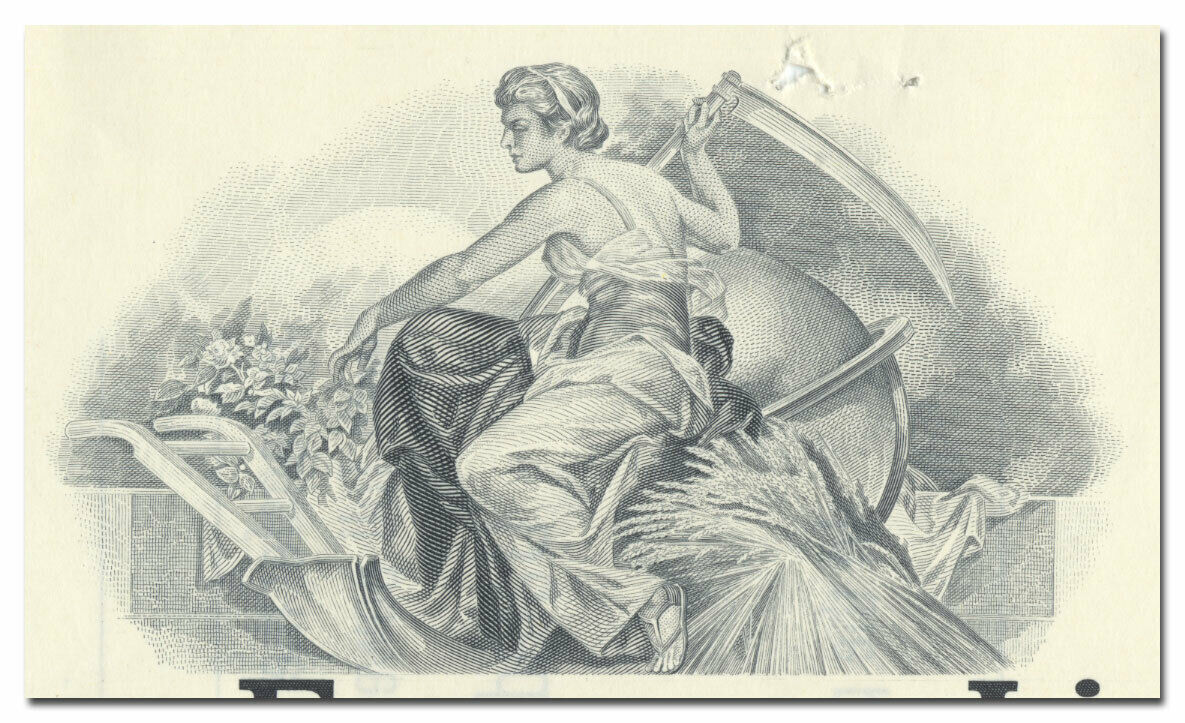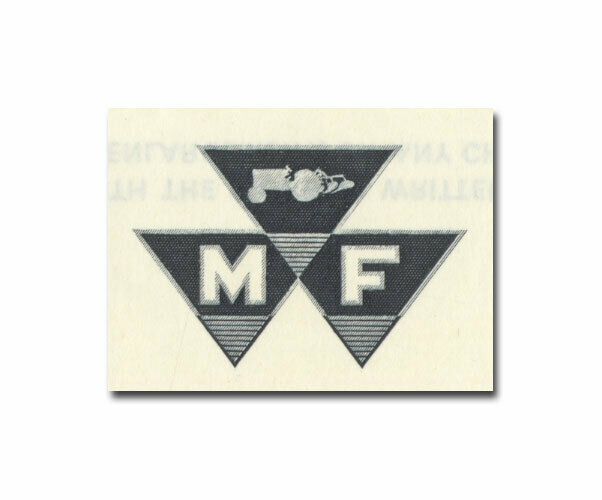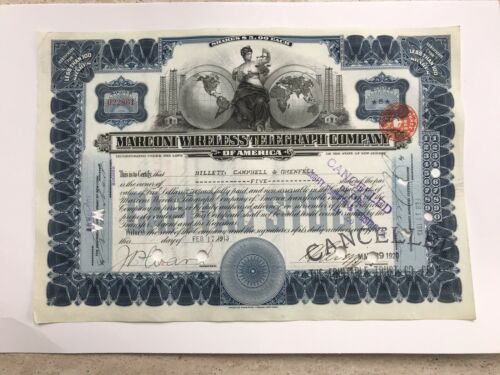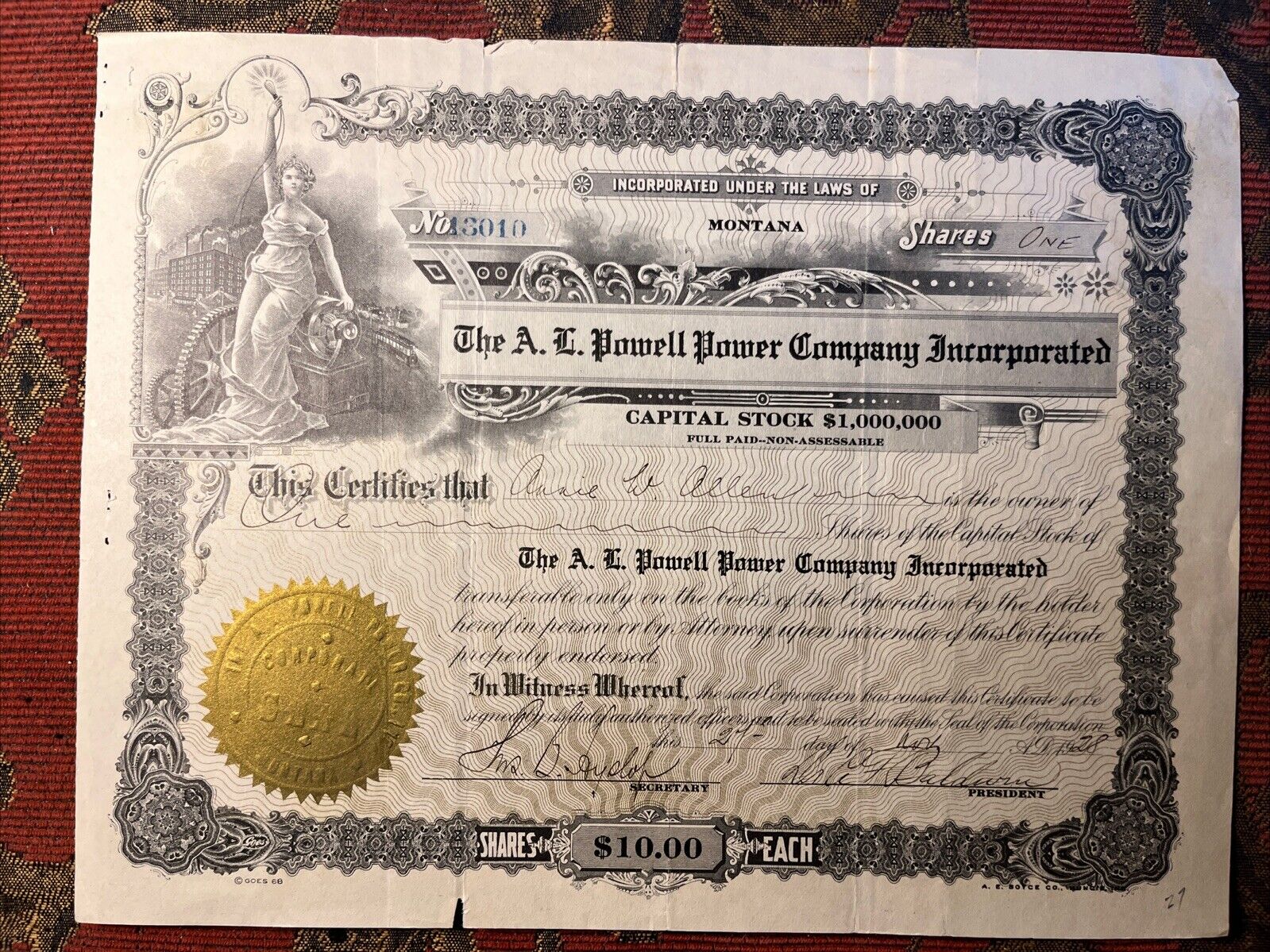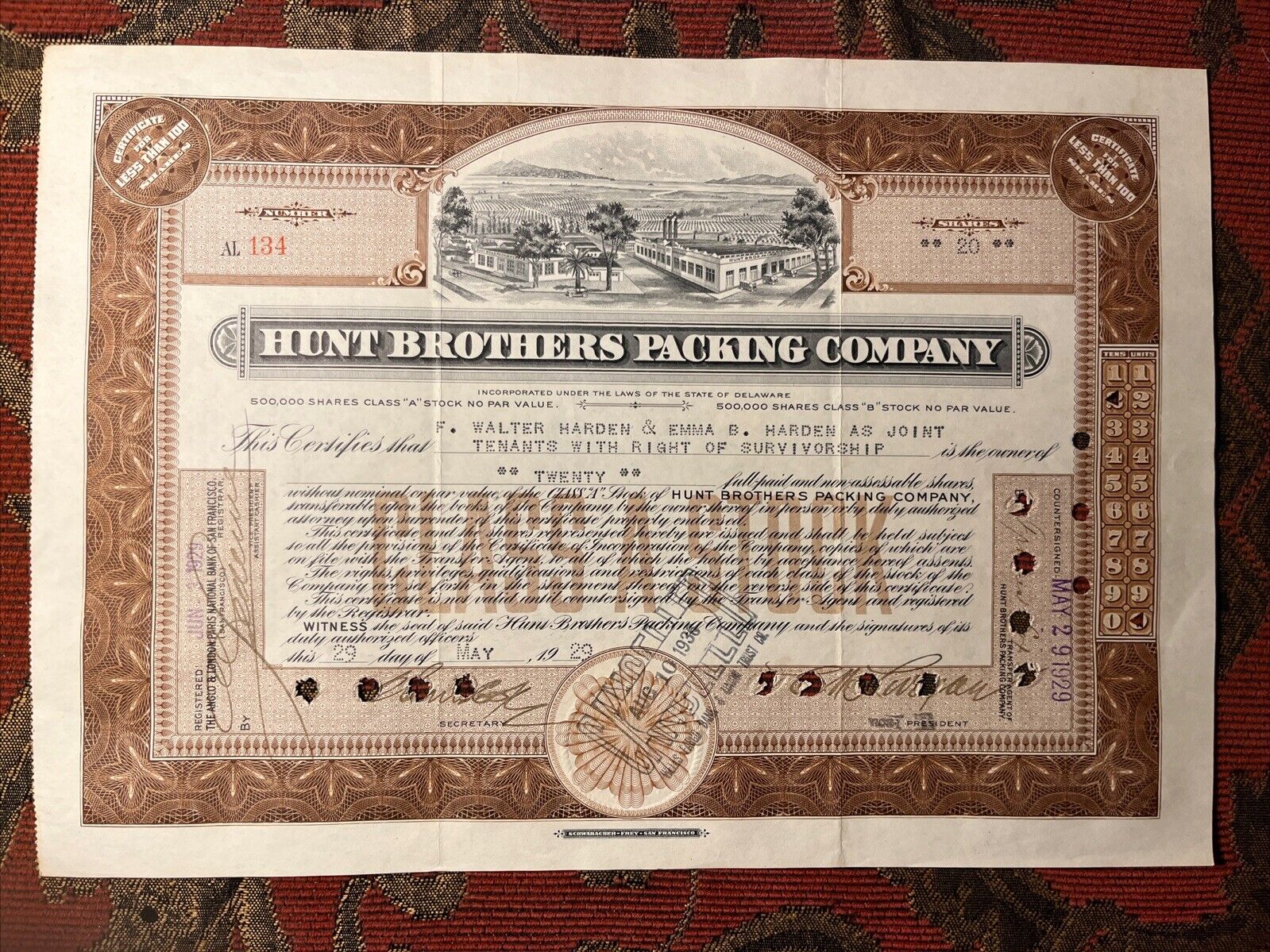-40%
Massey-Ferguson Limited Stock Certificate
$ 3.16
- Description
- Size Guide
Description
Product DetailsNicely engraved antique stock certificate from the Massey-Ferguson Limited dating back to the 1980's. This document, which contains the printed signatures of the company Chairman and Secretary, was printed by the British American Bank Note Company and measures approximately 12" (w) by 8" (h).
The vignette features a female figure with a plow, sickle, globe and grains.
Images
You will receive the exact certificate pictured.
Historical Context
Massey Ferguson was created with the merger between Massey-Harris and the Ferguson companies in 1952. The separate brands were retained until 1958, when the lines were merged and renamed Massey-Ferguson. The name was a shortened version of 'Massey-Harris-Ferguson'; the amalgamation of North American company name 'Massey Harris' with 'Harry Ferguson Limited' of England.
Henry George "Harry" Ferguson was an Irish engineer and inventor who is noted for his role in the development of the modern agricultural tractor, for becoming the first Irishman to build and fly his own aeroplane, and for developing the first four-wheel drive Formula One car. Massey-Harris was already a merger between the Massey manufacturing company and A Harris & Son.
Following the merger all of the new tractors offered the three-point hitch and that was a major selling point originally designed by Ferguson. Conflicts after the merger caused problems for between the old rivals. The company continued to sell two lines; one under the Ferguson brand and the other under the Massey-Harris brand. There was even an entirely separate dealer network for the two brands. That produced confusion in both the dealers and the customers. It also produced conflict over future designs. In just under a year, Ferguson left the board in a dispute over the design of the Massey-Harris Model "50." Nevertheless Massey Ferguson went on to become one the largest worldwide agricultural manufacturers.
On 16 August 1978, Conrad Black, whose family had obtained control of Argus Corporation, an investor in Massey Ferguson, became active in Massey Ferguson's management. The previous year, chairman Albert A. Thornbrough received a 1,000 salary, the highest executive salary in Canada at the time. During the 50 years between 1929 and 1979, the firm made more than 4% profit on its sales only five times. Under Black's leadership, Massey Ferguson instituted significant cost-cutting programmes that returned it to profitability. During the late 1970s, production was relocated to a new, large facility in Brantford, Ontario. In 1978, Massey Ferguson was the first to introduce an electronic control system for the three-point hitch on a tractor. However, a worldwide decline in the agricultural equipment market combined with high inflation, high domestic interest rates and a major recession, caused Massey Ferguson to slip into a loss once again. On October 31, 1979, Volkswagen AG made an informal offer for 51% of the firm, but was rebuffed by Black. On May 23, 1980, Black resigned as chairman. In a subsequent series of detailed and lengthy letters to Herb Gray—the then Canadian Minister of Industry under the government of Pierre Trudeau—he remarked on the challenges faced by the firm, and outlined his solution, which would have seen the Canadian and Ontario governments as well as Argus Corporation refloat the ailing firm. Black failed to obtain a suitable response, and resolved to cut his losses.
In October 1980, Argus donated its shares in Massey Ferguson to the employee's pension plans, leading the way to a 0 million bail-out from the Government of Canada and the Province of Ontario for the collapsing business, which later was renamed Varity Corporation. In the mid-1980s, Varity spun off several money-losing divisions into an entity called Massey Combines Corporation in 1985. Massey Combines Corporation was headquartered in Brantford and became insolvent on 4 March 1988, and its assets were re-acquired by Massey Ferguson.
